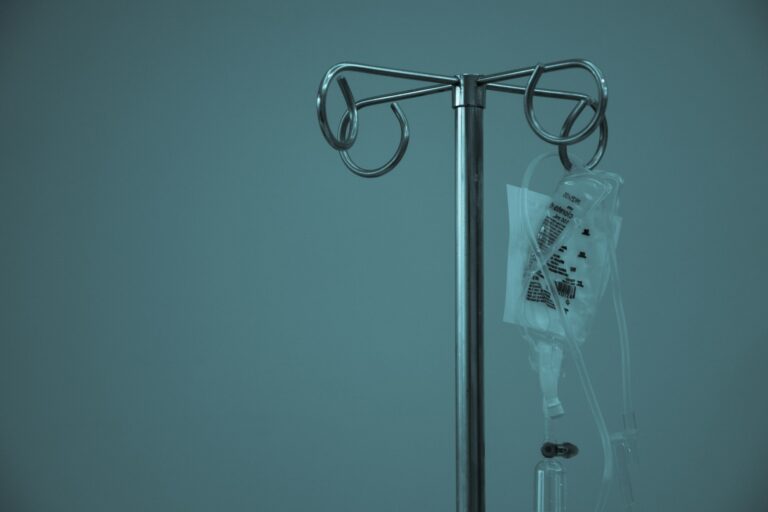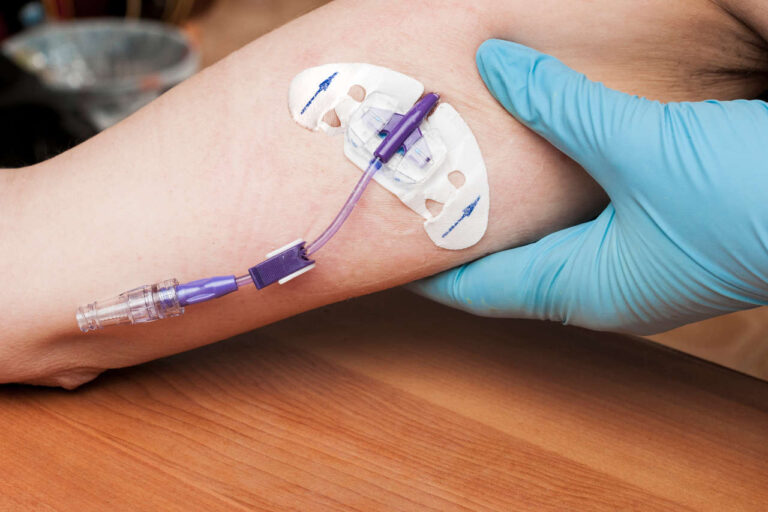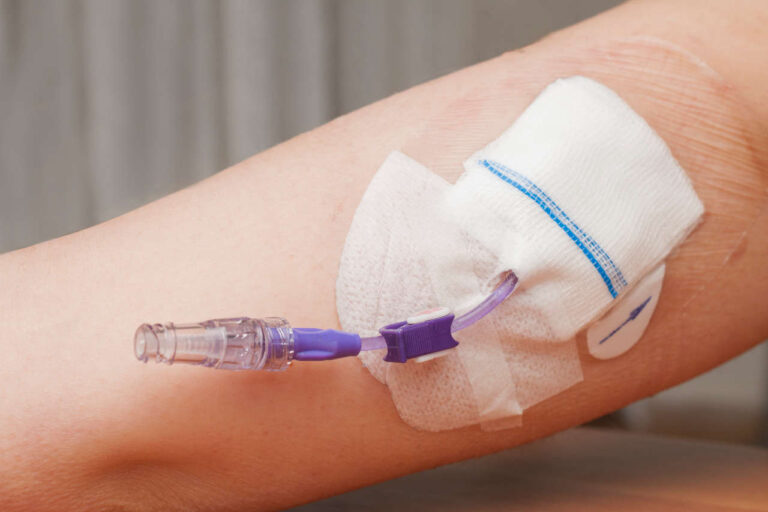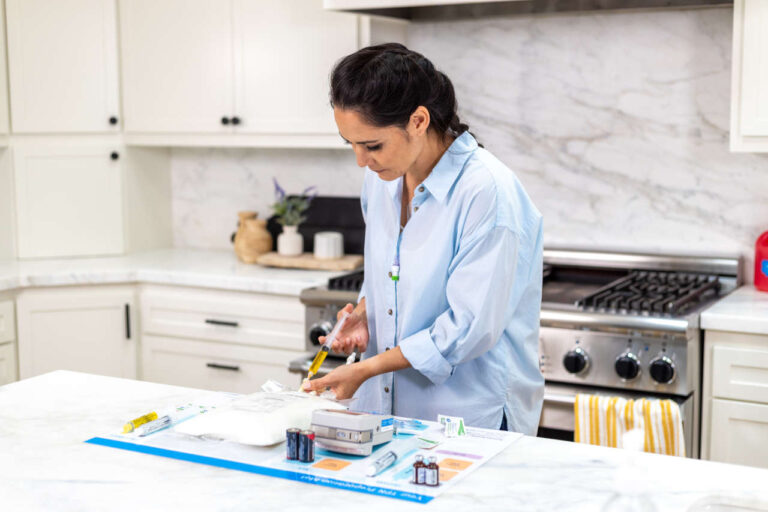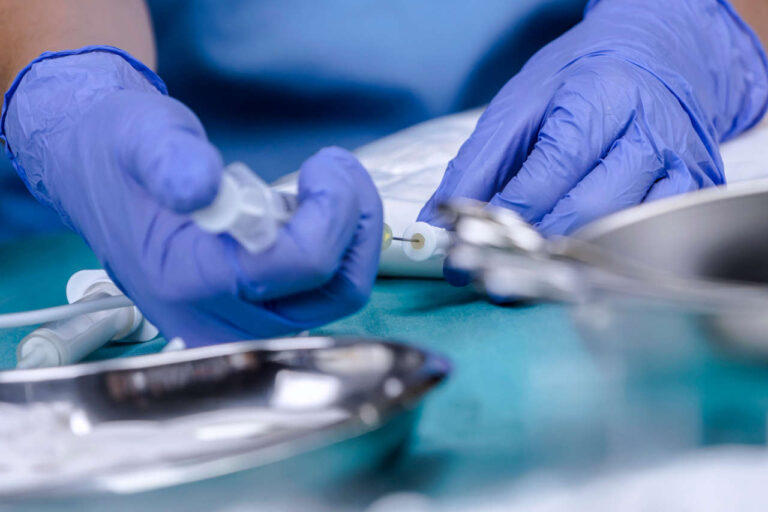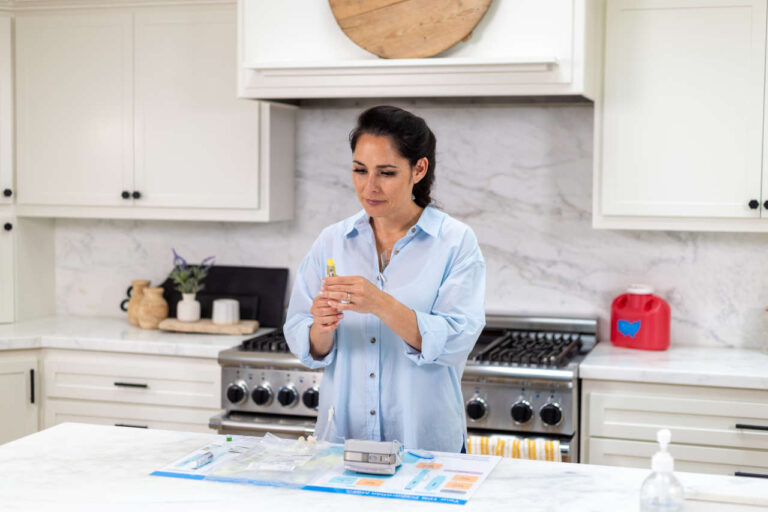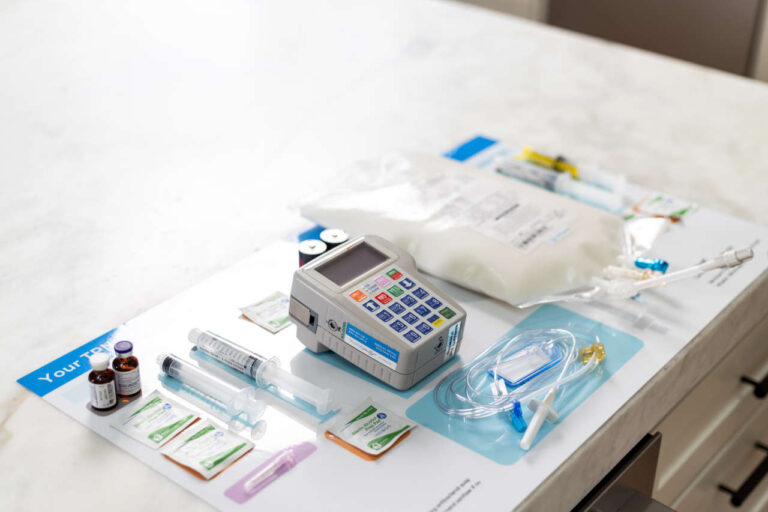
There are several conditions when all or part of a person’s digestive system doesn’t work, and in such cases, they are unable to obtain adequate nutrition by eating food and digesting it through their intestines. Patients diagnosed with such conditions typically have to receive their nutrition through their veins (intravenously); this therapy is referred to as total parenteral nutrition (TPN). TPN can be used for severe conditions that might be expected to last for a limited amount of time, such as uncontrollable vomiting that occurs during the first trimester of pregnancy. In other instances, it can be employed as a treatment for more extended periods of time.
Always in Stock
Full inventory of IV fluids, ready for youIt is essential to understand that TPN is not intended as a treatment for the underlying disease. Instead, it is used to treat malnutrition, which can be a common complication of several medical conditions such as Crohn’s disease, ulcerative colitis, and in some types of cancers.
In some mild conditions, the majority of physicians may prefer to keep TPN as a last option after trying other treatment methods first. For example, in order to increase a person’s weight, doctors may recommend that they eat frequent meals and follow a diet that is high in calories but low in sugar. In conditions where patients can’t chew and swallow, their doctors may have them attempt to feed themselves through a gastric tube. If these measures do not work, TPN is typically the next option.
Roughly half of all patients receiving TPN will require either long-term or permanent TPN treatment. The vast majority of patients on permanent TPN receive therapy in the comfort of their own homes. In the United States, there are approximately 40,000 people who receive TPN therapy at home.
TPN solutions have essential nutrients, and they typically include fluids, proteins, sugars, vitamins, and other electrolytes. TPN solutions are usually thick and concentrated, which requires the patient to have a central catheter inserted to be able to receive their infusions.
Complications of Total Parenteral Nutrition
Although TPN may offer many people who do not have fully functional intestines the opportunity to live long and productive lives, patients who are receiving TPN are always at an increased risk for complications related to the procedure.
Possible complications include:
- TPN-induced liver damage or, in worse cases, liver failure (TPN-induced liver failure is more common in children than it is in adults)
- Weak or brittle bones
- Inflammation of the gallbladder
- Frequent infections in the central-vein access lines
- Blood clotting in central access veins
- Refeeding syndrome (a serious condition that might happen if your body doesn’t process the TPN nutrients as expected, leading to electrolytes/fluids imbalance which could be potentially fatal in some cases)
AmeriPharma® Specialty Care
Total Parenteral Nutrition | Leader In TPN AssistancePatients who are receiving TPN and suddenly develop a fever or notice any change in the skin in the area around their central line should immediately contact their healthcare provider and go to the emergency room as this most likely indicates that they have an infection.
Because TPN severely limits daily activities, some people who receive it on a long-term basis may experience difficulties in their social lives.
Refeeding syndrome occurs in significantly malnourished patients when a diet of increasing calories is initiated. A dangerous shift in fluids and electrolytes occurs within the body during refeeding syndrome, which may result in serious complications, including seizures, heart failure, respiratory failure, and even death. Refeeding syndrome symptoms typically appear early in the refeeding process and require immediate medical intervention upon observation. Per the NICE (National Institute for Health and Care Excellence) guidelines, refeeding should commence at 10 kcal/kg per day in patients at risk and be increased slowly to meet or exceed the patient’s full nutritional needs over 4 to 7 days to prevent refeeding syndrome. In some other extreme cases, it may be necessary to start at 5 kcal/kg per day while monitoring the patient’s heart rhythm.
TPN Life Expectancy: How Long Can Someone Live on TPN Alone?

When determining the outcome for patients being treated with TPN, the underlying cause of the intestinal failure needs to be considered, and this would affect the long-term survival prospect for those patients. TPN-dependent patients have a 3-year survival chance of about 65 to 80%, and for the 20 to 35% of patients who do not respond well to TPN, intestinal transplantation may be a life-saving option. There are also cases where other patients who are successfully maintained by TPN may also benefit from having an intestinal transplant operation.
While TPN therapy done at home can be generally life-saving and life-sustaining for some patients, there are some cases (such as with advanced, incurable cancer patients) where the judgment/decision of TPN use should be clinically assessed on a case-by-case basis.
According to a multicenter (Europe and USA) retrospective questionnaire-based follow-up of a cohort of 472 patients with intestinal failure who had started home TPN therapy, the overall probability of survival was 88%, 74% and 64% at 1, 3, and 5 years respectively.
Various centers have reported that only 9% of patients pass away as a result of complications related to home parenteral nutrition (HPN). This is despite the fact that the majority of deaths (both malignant and nonmalignant) that are associated with HPN are attributable to the underlying disease. Deaths caused by the underlying illness typically occur within the first two years of treatment, whereas deaths caused by HPN typically occur after this period of time.
Speak to a Specialist About Copay Assistance
Initiating TPN at home is associated with long-term survival in a subset of patients who have incurable cancer, and the rates of complications associated with this treatment approach appear to be acceptable. However, to determine whether home TPN is a reasonable option, a careful clinical evaluation of the patient is required.
Home parenteral nutrition administered by trained teams has been shown to have significantly lower incidences of catheter-related complications. In most cases, the underlying diseases were responsible for the majority of the deaths that have occurred to patients who have been on TPN therapy.
Despite the apparent potential of treatments such as teduglutide and small bowel transplantation for conditions such as short bowel syndrome, home parenteral nutrition is likely to continue to be the most critical component of treatment for many patients for the foreseeable future.
REFERENCES:
- Hamdan M, Puckett Y. Total Parenteral Nutrition. [Updated 2022 Jul 20]. In: StatPearls [Internet]. Treasure Island (FL): StatPearls Publishing; 2022 Jan-. Available from: https://www.ncbi.nlm.nih.gov/books/NBK559036/
- John J, Seifi A. Total parenteral nutrition usage trends in the United States. J Crit Care. 2017 Aug;40:312-313. doi: 10.1016/j.jcrc.2017.04.018. Epub 2017 Apr 13. PMID: 28434532.
- Wall C, Moore J, Thachil J. Catheter-related thrombosis: A practical approach. J Intensive Care Soc. 2016 May;17(2):160-167. doi: 10.1177/1751143715618683. Epub 2015 Dec 3. PMID: 28979481; PMCID: PMC5606399.
- Nowak, K. (2020), Parenteral Nutrition–Associated Liver Disease. Clinical Liver Disease, 15: 59-62. https://doi.org/10.1002/cld.888
- Messing B, Crenn P, Beau P, Boutron-Ruault MC, Rambaud JC, Matuchansky C. Long-term survival and parenteral nutrition dependence in adult patients with the short bowel syndrome. Gastroenterology. 1999 Nov;117(5):1043-50. doi: 10.1016/s0016-5085(99)70388-4. PMID: 10535866.
- Lloyd DA, Vega R, Bassett P, Forbes A, Gabe SM. Survival and dependence on home parenteral nutrition: experience over a 25-year period in a UK referral centre. Aliment Pharmacol Ther. 2006 Oct 15;24(8):1231-40. doi: 10.1111/j.1365-2036.2006.03106.x. PMID: 17014582.
- Vantini I, Benini L, Bonfante F, Talamini G, Sembenini C, Chiarioni G, Maragnolli O, Benini F, Capra F. Survival rate and prognostic factors in patients with intestinal failure. Dig Liver Dis. 2004 Jan;36(1):46-55. doi: 10.1016/j.dld.2003.09.015. PMID: 14971815.
- Pironi L, Paganelli F, Labate AM, Merli C, Guidetti C, Spinucci G, Miglioli M. Safety and efficacy of home parenteral nutrition for chronic intestinal failure: a 16-year experience at a single centre. Dig Liver Dis. 2003 May;35(5):314-24. doi: 10.1016/s1590-8658(03)00074-4. PMID: 12846403.
- Messing B, Lémann M, Landais P, Gouttebel MC, Gérard-Boncompain M, Saudin F, Vangossum A, Beau P, Guédon C, Barnoud D, et al. Prognosis of patients with nonmalignant chronic intestinal failure receiving long-term home parenteral nutrition. Gastroenterology. 1995 Apr;108(4):1005-10. doi: 10.1016/0016-5085(95)90196-5. PMID: 7698566.
- Hoda D, Jatoi A, Burnes J, Loprinzi C, Kelly D. Should patients with advanced, incurable cancers ever be sent home with total parenteral nutrition? A single institution’s 20-year experience. Cancer. 2005 Feb 15;103(4):863-8. doi: 10.1002/cncr.20824. PMID: 15641035.
- Fan BG. Parenteral nutrition prolongs the survival of patients associated with malignant gastrointestinal obstruction. JPEN J Parenter Enteral Nutr. 2007 Nov-Dec;31(6):508-10. doi: 10.1177/0148607107031006508. PMID: 17947608.
- Scolapio JS, Fleming CR, Kelly DG, Wick DM, Zinsmeister AR. Survival of home parenteral nutrition-treated patients: 20 years of experience at the Mayo Clinic. Mayo Clin Proc. 1999 Mar;74(3):217-22. doi: 10.4065/74.3.217. PMID: 10089988.
- Pironi L, Joly F, Forbes A, Colomb V, Lyszkowska M, Baxter J, Gabe S, Hébuterne X, Gambarara M, Gottrand F, Cuerda C, Thul P, Messing B, Goulet O, Staun M, Van Gossum A; Home Artificial Nutrition & Chronic Intestinal Failure Working Group of the European Society for Clinical Nutrition and Metabolism (ESPEN). Long-term follow-up of patients on home parenteral nutrition in Europe: implications for intestinal transplantation. Gut. 2011 Jan;60(1):17-25. doi: 10.1136/gut.2010.223255. Epub 2010 Nov 10. PMID: 21068130.
- Hoda D, Jatoi A, Burnes J, Loprinzi C, Kelly D. Should patients with advanced, incurable cancers ever be sent home with total parenteral nutrition? A single institution’s 20-year experience. Cancer. 2005 Feb 15;103(4):863-8. doi: 10.1002/cncr.20824. PMID: 15641035.





